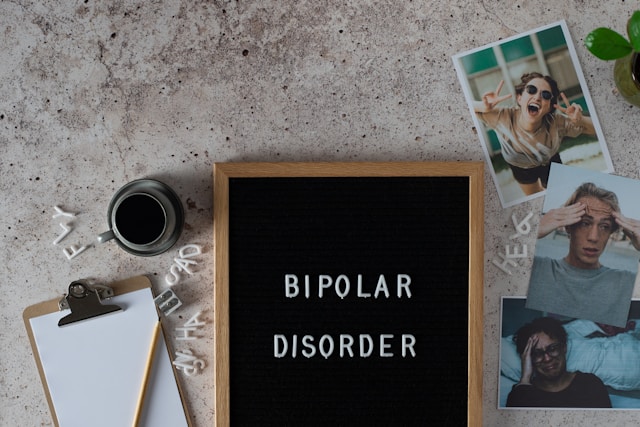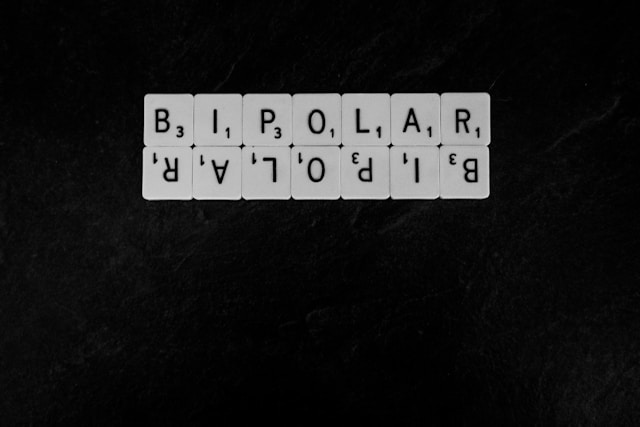Understanding Bipolar Disorder: Symptoms, Emotions, and the Importance of Seeking Help
Bipolar disorder is a complex mental health condition characterized by extreme shifts in mood, energy, and activity levels. It affects millions of people worldwide, impacting not only their mental well-being but also their relationships, work, and daily lives. Understanding bipolar disorder, recognizing its symptoms, and knowing when to seek help can make a significant difference in managing the condition effectively.
What Is Bipolar Disorder?
Bipolar disorder, formerly known as manic-depressive illness, is a mental health condition that causes unusual and intense mood swings. These swings are categorized into two main phases:
- Manic Episodes: Periods of extremely elevated mood, energy, and activity. During mania, individuals may feel euphoric, overly optimistic, or even invincible. However, it can also lead to impulsive behaviors, irritability, and poor decision-making.
- Depressive Episodes: Periods of intense sadness, hopelessness, and low energy. These episodes can make it difficult to perform daily tasks, maintain relationships, or find joy in life.
Some individuals may also experience hypomania, a less severe form of mania, or mixed episodes, where symptoms of mania and depression occur simultaneously.

Symptoms of Bipolar Disorder
The symptoms of bipolar disorder vary depending on the phase an individual is experiencing. Here’s a closer look:
Manic Episode Symptoms:
- Inflated self-esteem or grandiosity.
- Decreased need for sleep.
- Rapid speech or racing thoughts.
- Increased goal-directed activities or restlessness.
- Risky behaviors, such as overspending or engaging in unsafe activities.
Depressive Episode Symptoms:
- Persistent sadness or emptiness.
- Fatigue or lack of energy.
- Difficulty concentrating or making decisions.
- Loss of interest in previously enjoyed activities.
- Feelings of worthlessness or excessive guilt.
- Thoughts of death or suicide.
These symptoms can vary in intensity and duration, but they significantly disrupt daily life when left untreated.
How Does Bipolar Disorder Feel?
Living with bipolar disorder can feel like being on an emotional rollercoaster. During manic phases, individuals may feel unstoppable, filled with ideas and energy. However, this high can quickly turn into frustration, irritability, or impulsive decisions. Depressive phases, on the other hand, can feel like a heavy weight, making it hard to find motivation or even get out of bed. These dramatic mood swings can leave individuals feeling confused, isolated, and out of control.
When to Seek Help
Bipolar disorder is a lifelong condition that requires professional care. If you or someone you know experiences the following, it’s time to seek help:
- Frequent mood swings that disrupt daily life.
- Symptoms that last for days or weeks.
- Impulsive or risky behaviors during manic episodes.
- Suicidal thoughts or self-harm during depressive episodes.
- Difficulty maintaining relationships or work responsibilities.
Mental health professionals at New Psychiatric Health can provide comprehensive evaluations and personalized treatment plans to help manage bipolar disorder effectively.

Strategies for Managing Bipolar Disorder
While professional treatment is essential, there are strategies that can help individuals manage bipolar disorder and reduce the impact of mood swings:
1. Adhere to Treatment Plans:
Medications, such as mood stabilizers or antipsychotics, are often prescribed to regulate mood swings. It’s important to take medications as directed and attend therapy sessions regularly.
2. Establish a Routine:
Maintaining a consistent daily schedule for sleep, meals, and activities can help stabilize mood.
3. Monitor Mood Changes:
Keeping a journal to track mood patterns can help identify triggers and early warning signs of mood shifts.
4. Practice Self-Care:
Engage in activities that promote mental and physical health, such as exercise, meditation, or hobbies.
5. Build a Support System:
Connect with family, friends, or support groups for encouragement and understanding.
Can Bipolar Disorder Be Prevented?
While there is no way to prevent bipolar disorder, early intervention and proactive management can reduce its severity and frequency. Recognizing early symptoms and seeking help can prevent episodes from escalating and improve overall quality of life.
The Importance of Professional Help
Bipolar disorder is a serious condition that requires expert care. Treatment options, including medication, psychotherapy, and lifestyle changes, can make a significant difference in managing symptoms and improving daily functioning. At New Psychiatric Health, we offer specialized care tailored to your unique needs. Learn more about our bipolar treatment services here.
You Are Not Alone
Living with bipolar disorder can be challenging, but with the right support and resources, it’s possible to lead a fulfilling life. If you or someone you know is struggling with mood swings or other symptoms of bipolar disorder, don’t hesitate to reach out for help. Contact New Psychiatric Health today to take the first step toward stability and well-being.
Contact Us
- I offer telehealth and office appointments
- Availability as soon as 48 hrs
- Saturday appointments available
- 19045 N Dale Mabry Hwy Lutz
- Hablamos español
- admin@newpsychiatrichealth.com
- 727-476-5224
- 727-799-3199